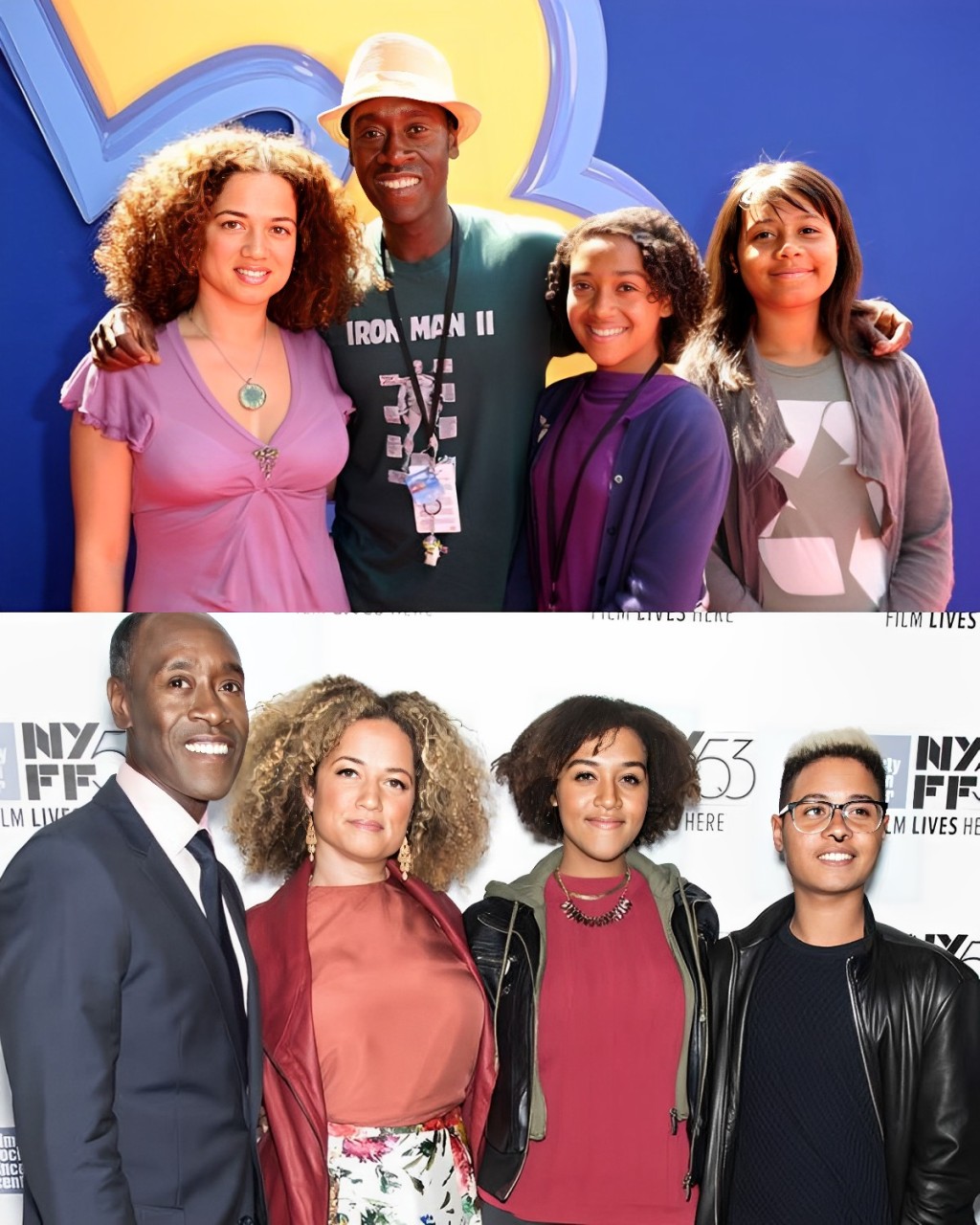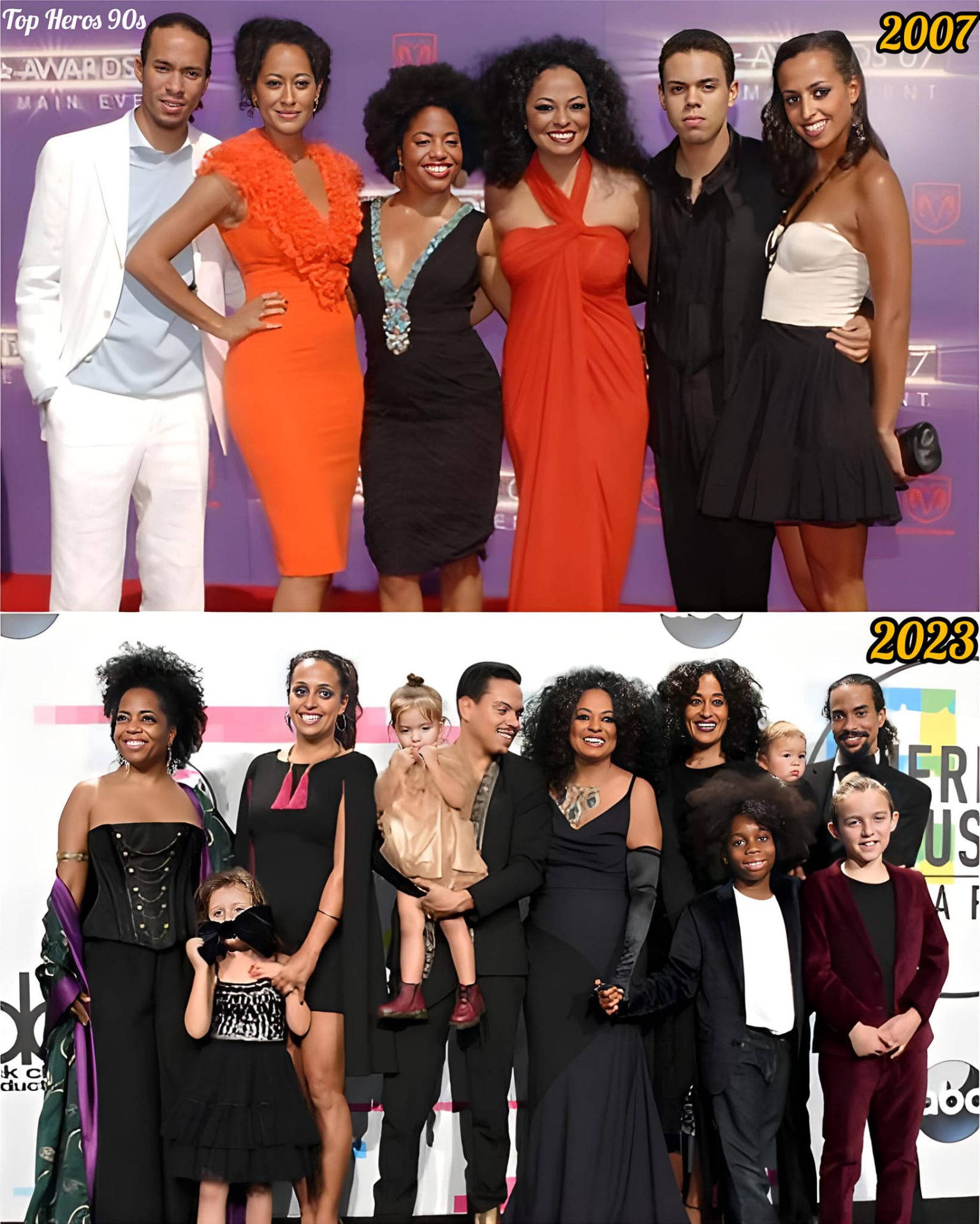Her performance in the acclaimed film has made her an unlikely star. But is she anything like her screen persona?

Just for the record, Gabby Sidibe is not a functionally illiterate high-school girl. Nor has she been repeatedly raped by her father. She doesn’t have two 𝘤𝘩𝘪𝘭𝘥ren as a result of her father’s abuse, one of them a 𝑏𝑎𝑏𝑦 with Down’s syndrome who has been taken into care. She doesn’t live in a disgusting apartment dodging frying pans hurled by an abusive mother. Nor, incidentally, does her mother hate Sidibe because she “seduced” her father. None of this is Gabby Sidibe’s life story at all.
Instead, it is the story of a girl called Precious whom Sidibe, in an astonishing debut, plays in a film of the same name. Just one problem. Sidibe keeps getting mistaken for the girl she plays. “I’ve seriously got people saying to me: ‘Are your 𝘤𝘩𝘪𝘭𝘥ren OK now?’ And not just from ordinary people, but from people who’ve been in the movie business 20 or 30 years.
“How dumb is that? It’s got credits, it’s got people in it who’ve acted before, it’s got stars like Mariah Carey and Lenny Kravitz in it; why would you think it’s a documentary? It’s like – Lenny Kravitz is in my documentary? And he’s my nurse? And Mariah Carey is my social worker?”
Well, duh. Sidibe sounds nothing like the character she plays. Rather than being grumpy, ground-down and barely articulate like her character, she sounds more like a sarcastic valley girl skewering the losers who can’t tell reality from celluloid. What’s more, she was 24 when she played the role of 16-year-old Precious.
When we meet, the morning after her film’s London premiere, Sidibe has had three hours’ sleep but still mostly giggles her responses to my questions. Which is a relief: Precious would have been hard work as an interviewee.
When I ask her if she’s angry about being mistaken for Precious, she replies: “I’m not mad – it’s like the funniest thing evurr” as though she were Alicia Silverstone in Clueless.
But Sidibe is not Alicia Silverstone. She is 300lbs of African-American New Yorker and, as far as I can tell, wouldn’t have it any other way. Three years ago she was a young psychology major from Harlem with next to no acting experience. Then she leapt from obscurity, beating 500 other auditioned wannabes to get the lead role in a remarkable movie that wowed them at Cannes, won awards at Sundance and sent Stateside critics into paroxysms of prose. “Movies come, movies go,” wrote the Washington Post’s Ann Hornaday. “But a rare few arrive like gifts, sent by some cosmic messenger to stir the senses, awaken compassion and send viewers into a world made radically new by invigorated alertness and empathy. Precious . . . surely qualifies as the most painful, poetic and improbably beautiful film of the year.”
As a matter of fact, the film wasn’t sent by a cosmic messenger. It was adapted by director Lee Daniels from the 1996 novel Push by a poet called Sapphire and exec produced by one Oprah Winfrey.
But, despite its faults, the film does stir the senses. Within moments of the film’s starting, you’re rooting for the obese girl, hoping she can get away from her mother, hoping she can get a remedial education, hoping she can look after her kids and hoping that she can realise the fantasy sequences in which she’s a glamorous star on a pedestal being pawed by buppie beaux.
The fat thing narks Sidibe. “That’s the tag line for the film and that’s what everyone says. But the issue of her being overweight isn’t the bigger issue. People go on about it a lot and I don’t think it’s the point.
“It’s like she’s fat. Well fucking A. She’s already having a hard life. So what, if she was skinny, would this story be any the less heartfelt or daunting. I think it’s funny that people are like ‘on top of that . . .’ but that’s not the story. That’s not the point.”
Well, it is and it isn’t. It is the point because the last time I saw a fat black girl as the heroine of a film was – never. Fat black women in mainstream movies usually turn out to be Eddie Murphy in a fat suit.
And it isn’t the point because, as Sidibe says, Precious’s life would be bad enough without the fat thing. The film takes out some of the more lurid incidents from the source material. In the 1996 novel, Precious is forced to perform oral 𝓈ℯ𝓍 on her mother and is convinced that she is going to die of HIV.
But the film is tough enough: Precious gets raped by her father, beaten up by her mother, bullied by schoolmates and despised by almost everybody else she runs across. She’s so clueless that when the nurse tells her that her first 𝘤𝘩𝘪𝘭𝘥 is a “mongoloid” (which raises the question – what kind of nurse would use such a term in 1980s New York?), Sidibe thinks it’s cute and calls the 𝑏𝑎𝑏𝑦 by that name. The film traces her faltering steps away from her harrowing past and her belated attempt to get an education. “She’s essentially escaping slavery,” says Sidibe. “Because even though she’s been abused by both parents, she’s a slave to her mother.” Indeed, her abusive father is barely seen in the film. Doesn’t his relative absence effectively serve to get him off the hook and mean most of the anger the audience feels for Precious’s plight is targeted at her mother? “I don’t think so. I think if the father were around it would be too much.”
Why did you want to audition for the role? “You know what? I’m not sure. I don’t know why I cut school to go to the audition. I’d never taken an interest in theatre.”
The truth is more complicated. Gabby’s mother, Alice Tan Ridley, an R&B singer who often performs in the Times Square subway station, had been offered an audition to play the film’s abusive mother by director Lee Daniels. “Lee’s a fan of her singing and he thought she could play the role. But my mom’s not an actress, so she turned him down and suggested me as the star.
“I’d only had a bit part in a college production of the The Wiz, so it really didn’t make sense. But moms are like that – you should do this, you should do that.” Again, this isn’t the whole truth. Before she became Precious, Sidibe played a pirate, a witch and a lesbian in college productions of Peter Pan, The Wiz and The Vagina Monologues, where she impressed with her acting and singing despite having little formal training.
Lee Daniels saw hundreds of audition tapes and toured the US looking for the right actor for Precious. “We were weeks away from the shoot but I still hadn’t found Precious. Do you know how difficult it is to find a 300lb black girl to be great in a movie? They don’t exist in Hollywood.”
But they do in Harlem. “I did the first audition for Billy Hopkins [the film’s casting director and Lee Daniels’ partner] and he didn’t speak for 30 seconds. Two days later Lee said to me: ‘I want you to be in my movie.’ The audition was on Monday and by Wednesday my life had changed.”
What did Sidibe do that captivated Daniels? “She broke my heart the way she played Precious.”
Up to that moment, Sidibe had no hopes of becoming a movie star. But suddenly there she was, hanging out on set with 𝘤𝘩𝘪𝘭𝘥hood idols. “When I was a kid, I used to sing Mariah Carey’s songs for quarters at recess. Now she’s in my film!” The daughter of a Senegalese-𝐛𝐨𝐫𝐧 cab driver father (hence her first name Gabourey) and a mother who as well as being a singer is a former teacher, Sidibe was thinking about becoming a therapist.
Did you think you had what it took to star in this film? “I guess physically I had the requirements but I didn’t think I could do it. I know I’m awesome, but I didn’t think I could be Precious, you know? I’m happy with the way I look, but I couldn’t be someone who wasn’t.”
Lee Daniels told one interviewer that Sidibe is “unequivocally comfortable in her body . . . I had no doubt that she had four or five boyfriends, easily.” Is that true, I ask Sidibe? “It’s a gross underestimate,” she says, cackling.
Are you happy with the way you look? Sidibe stops giggling and faces me down. “When I was 14 I decided that whatever people say and no matter what I look like, I was going to be happy with myself – it’s like a force of will. And it worked for me.”
Do you get the sizeist kind of abuse that Precious experiences? “No, but some people close to me sometimes say things that are pretty close to upsetting me.” She recalls that aged 11, an aunt offered to pay for a cruise if she lost 50lb.
For a moment, despite the early hour and the dearth of sleep, Sidibe becomes pensive. “I don’t know what it’s like to be Precious, but – you know what? – she’s not an alien to me. Not because she’s a big girl. I’ve had to deal with difficult things in my life because of how I look. I have been made fun of for my dark skin by my older brother – he has lighter skin. In school the lighter-skinned or pretty girls would make fun of me. I don’t know what it’s like here or other places, but in the US it’s definitely a big deal. Darker-skinned people sit at the back of the church, you know?”
At one point, Lee Daniels sought to cast Sidibe’s real-life mother as her screen one. What would it have been like if your real mother had successfully auditioned for the role of your abusive movie mother? “I haven’t entertained that horrible thought,” giggles Sidibe. “I think it would be weird. Thankfully it didn’t happen.”
Instead, Sidibe wound up on set opposite Mo’Nique, a bawdy US comedian and TV hostess, as her mother. “She’s my idol,” says Sidibe. “It’s rare that you get to work with someone you absolutely adore.” Sure, but what about when your idol throws a frying pan across the kitchen? “It was a rubber frying pan and Mo’Nique said it was very impressive that I could duck it even though I didn’t know it was coming.”
Sidibe makes the shoot sound like a laugh riot. “On the darkest movies you still have a lot of fun. I bet on horror movies they have fun doing stuff.”
This is surprising to hear, particularly as both Mo’Nique and Daniels brought a great deal of bleak personal baggage to the shoot. Mo’Nique, who on Sunday won the best supporting actress Golden Globe for her performance in Precious, has said she was abused by her brother for four years from the age of seven. She told one interviewer: “Lee said: ‘Be a monster.’ And my brother was that monster to me. When Lee said ‘Action’, that’s who I became.” As for Daniels, he says his sister was “an obese crack addict”: “She had a chicken wing in one hand and a crack pipe in the other, and yet she had a line of white men waiting for her.”
Didn’t that make the film difficult to work on? “Nope. When we were filming, nobody knew about Mo’Nique’s history except me. Nobody really knew about Lee’s history either. But, for sure, they both brought their lives to this film.”
Lee Daniels is best known as the producer of the Oscar-winning Monster’s Ball. He made his directorial debut in 2006 with Shadowboxer, ostensibly a thriller about contract 𝓀𝒾𝓁𝓁ers starring Helen Mirren as the stepmother (and lover) of Cuba Gooding Jr. Precious is a million miles away from being thriller material.
“I don’t think Lee got Precious at the start,” says Sidibe. “He assumed what she was like. He thought bigger girls were dumb. Is he ever wrong!” she laughs.
So you understood Precious better than him? “Hell, yeah. I’m a girl – so I knew what Precious was like a little bit better than him. Plus, he’s from Philadelphia and I’m from Harlem, so I brought New York to this character.”
More importantly, she understood how Precious would present herself to a hostile world in a way that the director couldn’t. “He assumed she wouldn’t try to be presentable – but I knew she would. She wouldn’t wear – as Lee initially thought – pink yellow and orange and flannel. He wanted to tie my hair into ponytails to make me look poor – but I would never have looked like that. I’m not a rich girl but I would never dress like that. And I knew Precious wouldn’t. So he changed her wardrobe.”
But what about the hunched and truculent way Precious carries herself – so very different from the way beaming Gabourey Sidibe swept into the room an hour ago? “I channelled her anger and her daunting disposition. She walks into the room and her shoulders are hunched. She disappears into her own world. It’s called acting, sweetie,” she says.
It certainly is. And it’s the kind of acting that is getting the 26-year-old mentioned as an Oscar contender. “That’s insane!” she shouts delightedly.
It’s also a film that, supposedly, throws into relief the notion that African Americans can expect their lives to be sunshine and lollipops now Barack Obama is in the White House. “Just because our president is black doesn’t mean our struggle stops,” says Sidibe. “The Obama family is something for us to aspire to, but a lot of us aren’t going to get there.” Is Precious going to get there? “Precious’s story is a fiction,” says Sidibe, “but it’s also a truth. There are lots of Preciouses out there and not all of them are as lucky as her. She has a light of hope in her that we see in the film even when she’s in the heart of darkness. Others may not be so lucky. But who knows if she’s going to get out of her world. We hope she will, though, don’t we?” We certainly do.
Sidibe now has a string of other movie projects in the pipeline, and is currently working on a film called Yelling to the Sky opposite Don Cheadle. “This time, I get to make out with a boy. I know that because I wrote it into the script.”
The interview is over. Sidibe sweeps out of the interview suite, leaving me to flick through the cuttings to find one favourite quote from her past interviews. “The press paints the picture that I got this role and now I’m awesome,” she said once. “But the truth is that I’ve been awesome and then I got this role.” It’s true: Gabby Sidibe is more awesome than precious.





